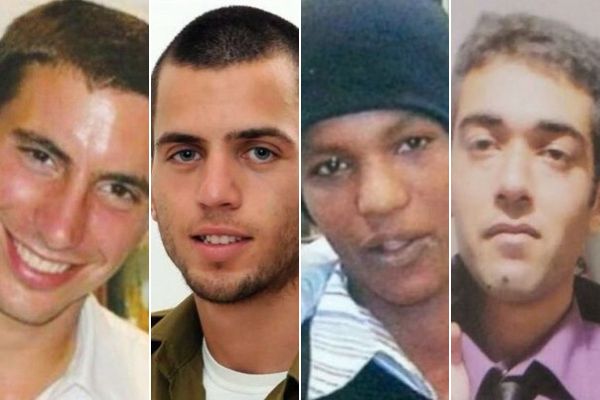Israel has been close to reaching a prisoner exchange deal a number of times.
By World Israel News Staff
The Hamas terrorist organization on Monday claimed that the medical condition of one of the Israelis being held hostage has deteriorated, but exactly who are the captives and why have multiple attempts at a prisoner exchange deal failed over the years?
Hamas are holding two living Israelis, Avera Mengistu and Hisham al-Sayed, as well as the bodies of two Israeli soldiers, Oron Shaul and Hadar Goldin. The terror group has never confirmed the death of the latter two, but Israel believes they were killed in 2014’s 50-day summer conflict known as Operation Protective Edge.
Mengistu and al-Sayed both have a history of mental illness as well a history of wandering for long distances on foot. Both crossed the border into Gaza on separate occasions in 2014 and 2015 respectively. They have had no communication with their families since then.
The families of Shaul and Goldin have launched massive campaigns over the years aimed at pushing the government into striking a deal for the return of their children’s bodies.
Israel has been close to reaching another swap on a number of occasions, often through Egyptian mediators. Moshe Tal, the former IDF official responsible for captives, said last December that Israel had missed a “window of opportunity” and that likely the reason for that was because “we are traumatized by the Gilad Shalit deal.”
Tal was referring to the highly controversial prisoner exchange of 2011. Israel released 1,027 Palestinian prisoners in exchange for Shalit, who was abducted by Hamas in a cross-border raid. Shalit was held captive in Gaza for over five yeares.
“I do not take it lightly, but trauma is not a work plan,” Tal said.
Some critics have blamed the government for doing to more to secure Mengistu and al-Sayed’s release, accusing officials of caring less about their fate since they are, respectively, Ethiopian-Israeli and Arab-Israeli.
Earlier this month, a former National Security Council official known only as “Maoz” said that the Israeli public needs to raise the profile of the captives’ plight.
“We have two civilians and two soldiers who are there and this needs to always be in front of our eyes and we need to do everything in order to return them. Hamas needs to understand that there is a line, a strong line, and not a line that is blurred all the time and is crossed,” Maoz was cited by the Jerusalem Post as saying.
“I think that we were very close to a solution concerning the captives and missing, again, because of reasons that I don’t want to get into at the moment, we did not reach a solution,” it said.
Prime Minister Naftali Bennett’s office on Monday said it would “continue its efforts to bring the captives home.”
Hamas’ announcement on Monday marked the first time the terror group had spoken about the condition of its captives. It did not specify whether the deteriorating health referred to Mengistu and al-Sayed. The announcement amounted to “psychological warfare,” Israeli media reported citing security officials.
“This is a provocation by Hamas on the eighth anniversary of Operation Protective Edge. We do not recognize any change in the status of their health,” a senior Israeli official told the Kan Public Broadcaster.





